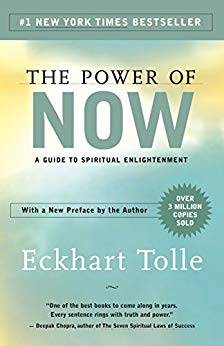

This article is an excerpt from the Shortform summary of "The Power of Now" by Eckhart Tolle. Shortform has the world's best summaries of books you should be reading.
Like this article? Sign up for a free trial here .
What is the ego? How does identifying with your ego prevent you from seeing the world clearly and objectively?
According to Eckhart Tolle, ego is your “I,” or self—how you distinguish yourself from others. The ego creates your identity from your social status, job, possessions, education, appearance, relationships, personal and family history, beliefs, and membership in political, national, racial, and religious groups. While your ego is an indispensable part of your self, identification with it can cloud your perception of objective reality.
Here is how giving the power to your ego can sabotage your inner peace and cloud your interpretation of reality.
What Is the Ego?
The ego is a part of your mind that tries to control your thinking and behavior. It’s that voice inside your head. It can be characterized as the devil or angel on your shoulder. It is the voice that analyzes what’s going on around you, comments on your interactions, dwells on the past, speculates about the future, complains, likes or dislikes things, and makes you question yourself in moments of doubt. This internal voice is the ego.
The ego gives you an interpretation of the world, not a true reflection. The only true way to see the world is by being fully present and experiencing the Now, without judging or analyzing it.
We tend to think that these thoughts and experiences define us, and that our ego is who we are — after all, it’s coming from inside our own head, so who else could it be? But, in fact, the ego is not our true Being. Our true Being is the essence of who we are, separate from our mind and body. We’ll discuss this more later.
In order to connect with your true self, you must stop identifying with your ego. You may resist letting go of this identity because if you are not made up by the contents of your mind, then who are you? But problems arise when you identify with your ego, believing that your thoughts, memories, beliefs, and mental condition define you.
While cultural conditioning, past experiences, and other influences can, indeed, affect your behavior, there’s no need to cling to them as your identity. Allow yourself to be present and their influence may or may not come out naturally.
The Ego Manufactures Problems
According to Eckhart Tolle, the ego only has as much power as you give it, and it gains power when you identify with it. Your ego is threatened by your true Being because when you connect with your true Being, you realize that, by contrast, you are not your ego.
You can feel your true Being when you are present in the Now, so the ego is also threatened by presence. In the interest of self-preservation, your ego will do whatever it can to prevent you from being present and identifying with your true self.
- The ego is the force pushing your attention away from the present to dwell on the past and future.
- The mind can only function in the past and future, because they only exist in your mind (in memories and projections). But the ego has no control over the present, so it pulls you away from the Now.
The ego uses fear as a tool to prevent you from being present.
The ego creates worry about the past and future that cause you to dwell on problems and situations you often have no control over.
The ego is not responsible for productive forms of fear that comes in response to a present and immediate danger, which activates your fight or flight response for survival. The ego only creates hypothetical and speculative fear.
(Shortform example: when you’re stuck in traffic and running late to a meeting, the ego is responsible for your stress about walking in late, your worry that your coworkers will think you’re irresponsible, and the hypothetical scene playing in your head of the boss reprimanding you. In reality, your boss and coworkers may (or may not) be more understanding than you think, and some of them might even be caught in this traffic snarl too.
Regardless, stressing about it won’t make the cars move any faster. If you’re present instead, you’ll at least be calm and alert when you do arrive for the meeting, instead of frantic and distracted. Plus, with a clear head, you might even be able to think of another route to circumvent the traffic.)
The ego creates more abstract fears, triggered by perceived threats to your ego-created identity.
If a situation or person is challenging some aspect of your supposed identity — e.g. your religious beliefs — and you relent, will you no longer be you? No, you will continue to be yourself, and you may realize that this element or belief didn’t make you who you are. That epiphany is one step closer to understanding that your ego-created identity is a sham and to connecting with your true Being. This, again, is a threat to the ego.
For example, if you always need to be right in an argument, that stems from a fear of losing your sense of identity. If you believe your thoughts and your mental positions are part of who you are (based on your ego-created identity), then being wrong shakes the foundation of your identity. But if you know your true self is not tethered to your thoughts and beliefs, then it doesn’t matter if you’re right or wrong.
Notice when you get defensive about something. Ask yourself, “What am I defending?” You are likely defending the identity your ego has created.
The ego will feel threatened as you start practicing mindfulness and resisting its control, so it may create more fears in an effort to stay in control.
The ego always has a feeling of lacking or being incomplete. This can manifest as not feeling worthy or good enough.
The ego’s lacking feeling can create an intense, ego-fueled craving or desire for possessions, money, success, power, recognition, a relationship, or another temporary pleasure to fill that void.
The ego falsely believes that temporary pleasures can make you feel complete. When we identify with our mind, we identify with those desires and cravings. We seek fulfillment and happiness through acquiring those things, but although they may momentarily satiate the craving, satisfying a desire will never bring peace and enlightenment.
- In an extreme form, these cravings become addictions.
- The Buddha says that pain and suffering come from desire and craving.
Desires and cravings keep our focus in the future: “Once I attain this, I will be happy.” That mindset keeps us out of the present moment, which is the only place to find peace and enlightenment.
Your desires may even include enlightenment. You might think, “I will work to achieve enlightenment, and when I reach it, my life will be better.” Although enlightenment does bring joy and peace, your ego is still placing that in the future. Instead, you can experience joy and peace now by being present.
———End of Preview———

Like what you just read? Read the rest of the world's best summary of "The Power of Now" at Shortform . Learn the book's critical concepts in 20 minutes or less .
Here's what you'll find in our full The Power of Now summary :
- Why you feel pain from the past, and how to get rid of it
- How to be more present and stop worrying about the future
- The 8 key ways to achieve mindfulness






